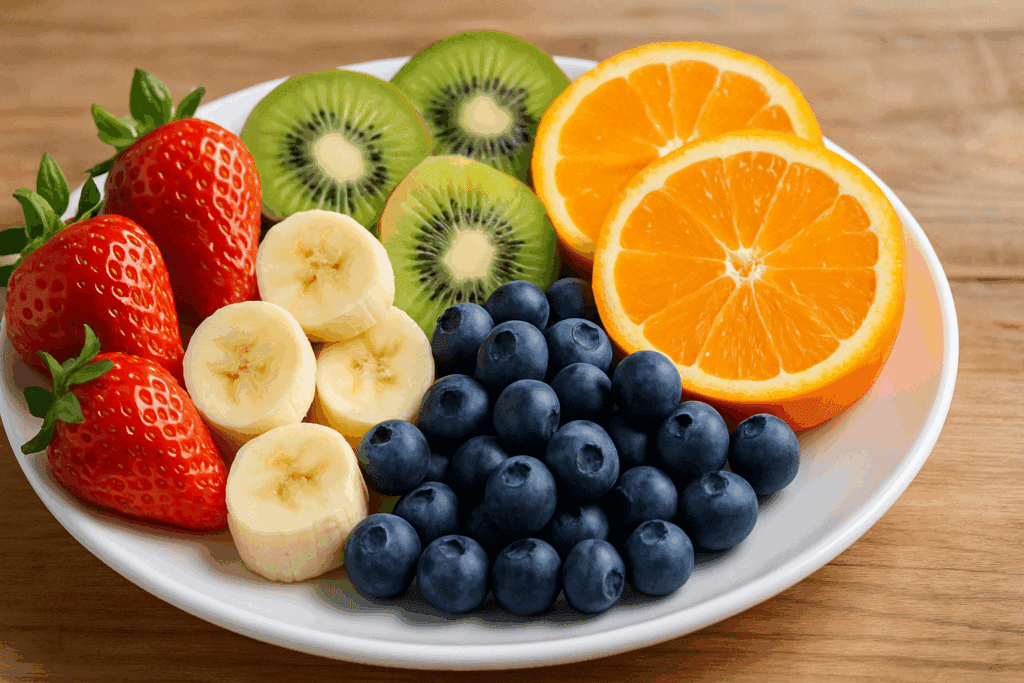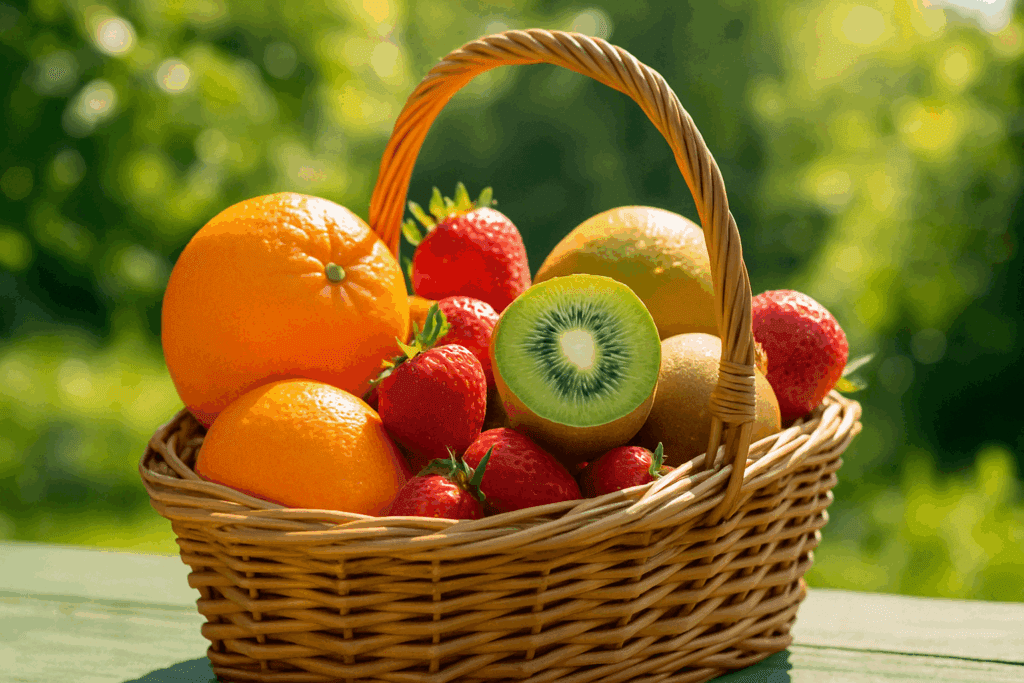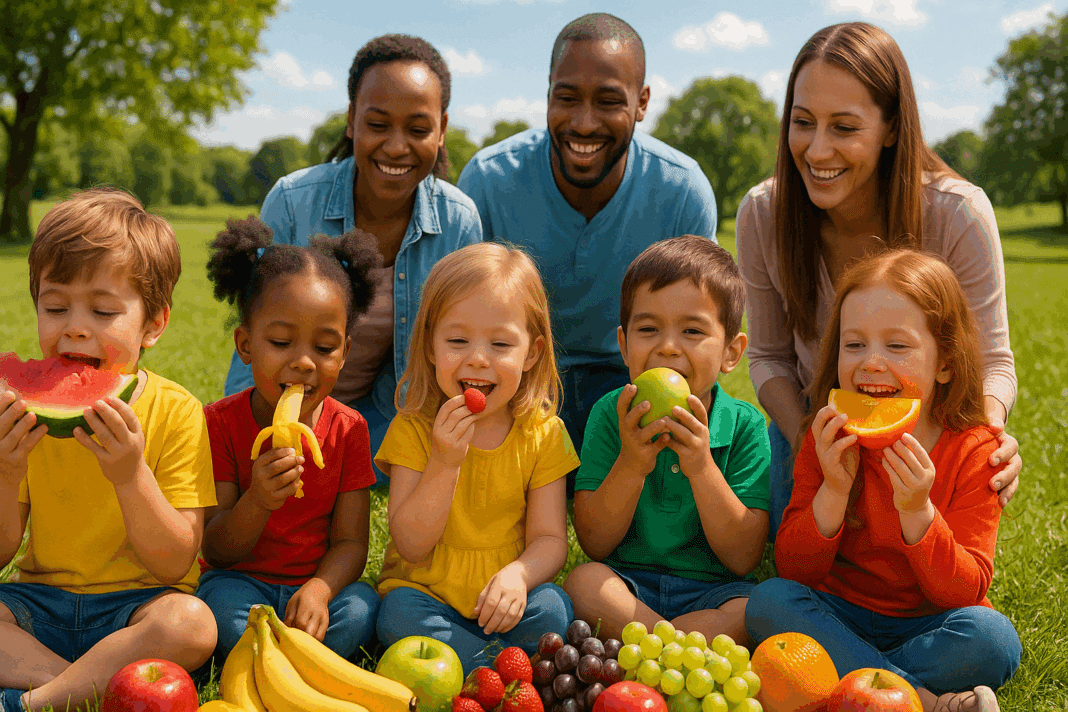Introduction: Why Early Nutrition Matters for Lifelong Health
When considering the foundational years of life, nutrition emerges as one of the most critical determinants of a child’s future health, cognitive ability, and emotional well-being. Preschoolers, typically ranging from ages three to five, undergo rapid growth and development that lay the groundwork for their lifelong wellness. In this delicate period, every bite they consume carries amplified importance. Fruits, with their dense packages of vitamins, minerals, fiber, and phytonutrients, offer profound support to the developing bodies and minds of young children. Understanding the nutrient of fruit for preschoolers is essential for parents, caregivers, and educators aiming to foster robust growth, resilient immunity, and sharp cognitive functions. Equally vital is answering the common parental query: what benefits does fruits do for preschoolers? This article will explore this question comprehensively, linking nutritional science with practical advice to promote optimal child health.
You may also like: 4 Ways to Have a Healthy Diet: Expert Tips Backed by Science for Better Nutrition and Long-Term Wellness
The Nutrient Profile of Fruits: A Natural Powerhouse for Preschoolers
Fruits are among nature’s most generous offerings, packed with essential nutrients that preschoolers require to thrive. They provide a wide array of vitamins such as vitamin C, vitamin A, various B vitamins, and vitamin K, each playing a crucial role in bodily functions. Vitamin C, for example, supports the immune system and enhances iron absorption, while vitamin A promotes healthy vision and skin integrity. Beyond vitamins, fruits are rich in minerals like potassium, which regulates blood pressure and supports muscular function. The fiber content found in whole fruits aids digestion and fosters a healthy gut microbiome, which recent research increasingly links to immune health and even emotional regulation. Furthermore, fruits offer antioxidants and phytochemicals that help protect young cells from oxidative stress, thereby contributing to long-term disease prevention. When examining the nutrient of fruit for preschoolers, it becomes clear that fruits are not mere snacks; they are strategic components of a developmental blueprint.

Promoting Physical Growth: How Fruits Foster Healthy Bodies
The physical growth of preschoolers encompasses increases in height, muscle mass, bone density, and organ maturation. Proper nutrition supplies the building blocks needed for these transformations. The nutrients in fruits directly influence several growth-related processes. For example, vitamin C plays a pivotal role in collagen production, which is vital for skin, cartilage, and bone development. Potassium assists in maintaining electrolyte balance, crucial for muscle contractions and heart health. Additionally, the high water content in many fruits supports proper hydration, which is often overlooked yet fundamental for cellular activities. When discussing what benefits does fruits do for preschoolers, one cannot ignore their contribution to a child’s physical expansion. A child whose diet is abundant in varied fruits tends to experience better overall growth trajectories, exhibiting stronger bones, more resilient skin, and improved metabolic functioning.
Strengthening Immunity: Building the Body’s First Line of Defense
Preschoolers are particularly susceptible to infections as their immune systems are still maturing. One of the most compelling arguments for a fruit-rich diet is its impact on immunity. Fruits such as oranges, strawberries, and kiwis are rich in vitamin C, a powerful antioxidant that bolsters the body’s defense mechanisms by stimulating the production of white blood cells. Meanwhile, fruits like bananas and avocados provide B vitamins that support energy metabolism and the production of immune cells. The fiber found in fruits feeds beneficial gut bacteria, creating a thriving microbiome that serves as a critical component of the immune system. Consequently, the nutrient of fruit for preschoolers extends beyond basic sustenance; it serves as an immunological training ground, equipping young bodies to better fend off pathogens and recover quickly from illnesses.

Enhancing Brain Development: Nourishing Cognitive and Emotional Intelligence
Brain development during the preschool years is extraordinary. Synaptic connections form at a staggering pace, language abilities blossom, and emotional regulation skills begin to take root. Nutritional support for these processes is indispensable. The B vitamins abundant in fruits like bananas and mangos are crucial for the production of neurotransmitters, chemicals that facilitate communication between brain cells. Omega-3 fatty acids, though more abundant in other food groups, find complementary support from fruits like avocados, which also supply healthy fats essential for brain cell membrane integrity. Antioxidants such as flavonoids, present in berries and apples, are known to cross the blood-brain barrier and exert neuroprotective effects. Understanding what benefits does fruits do for preschoolers in this domain reveals their subtle yet profound impact on intelligence, memory formation, and emotional resilience. A diet rich in colorful fruits can make the difference between average cognitive outcomes and the flourishing of a child’s full intellectual potential.
Understanding the Role of Specific Fruits in Child Development
Different fruits offer distinct nutritional profiles, and strategically including a variety of fruits ensures comprehensive benefits. Citrus fruits, with their robust vitamin C content, are invaluable for immune defense and skin health. Berries provide potent antioxidants that combat inflammation and support neural development. Bananas offer potassium and vitamin B6, both vital for energy metabolism and cognitive function. Apples contribute soluble fiber, which regulates blood sugar levels and feeds gut-friendly bacteria. Avocados, though technically a fruit, provide monounsaturated fats that are key to brain health. In answering what benefits does fruits do for preschoolers, it becomes evident that each fruit brings its own unique assets to the nutritional table. Encouraging diversity in fruit consumption helps ensure that no essential nutrient is overlooked, creating a symphony of nutritional support tailored to the complex needs of growing preschoolers.

Practical Strategies for Incorporating More Fruits into Preschoolers’ Diets
While the importance of fruits is undeniable, getting preschoolers to consume sufficient quantities can present a challenge. Many young children exhibit neophobia, a fear of trying new foods. To counter this, caregivers can employ several strategies. Presenting fruits in fun, visually appealing ways—such as colorful fruit kabobs or smoothie bowls—can make them more enticing. Involving children in the selection and preparation of fruits increases their investment and willingness to try new options. Offering fruits consistently, without pressure, allows children to become familiar with their textures and tastes over time. Pairing fruits with familiar foods can also ease transitions; for instance, adding banana slices to a favorite cereal. By understanding the nutrient of fruit for preschoolers and implementing these strategies, caregivers can transform mealtimes into opportunities for nutritional enrichment and joyful exploration.
Overcoming Common Misconceptions About Fruit and Sugar Content
A frequent concern among parents is the natural sugar content of fruits. While it is true that fruits contain fructose, it is crucial to differentiate between natural sugars and added sugars. Fruits package their sugars alongside fiber, water, and a host of beneficial compounds that mitigate blood sugar spikes and contribute positively to health. Unlike candies or sodas, fruits provide nutritional dividends far beyond mere energy. Studies consistently show that higher fruit intake in children is associated with lower risks of obesity and metabolic disorders, not higher. Understanding what benefits does fruits do for preschoolers necessitates dispelling myths and embracing fruits as foundational components of a balanced diet. Education around the context of sugar—highlighting the protective role of fiber and antioxidants—can empower parents to make confident dietary choices for their children.

Addressing Allergies and Dietary Restrictions: Safe Fruit Choices
Although rare, fruit allergies can present challenges in constructing a varied diet. Common allergens include strawberries, citrus fruits, and certain stone fruits like peaches. Symptoms may range from mild oral irritation to more serious reactions. In such cases, it is critical to consult with a pediatrician or allergist to identify safe alternatives. Many fruits offer overlapping nutrient profiles, allowing substitutions without significant nutritional losses. For example, if citrus fruits are problematic, kiwis and strawberries can offer similar vitamin C content. When evaluating the nutrient of fruit for preschoolers with dietary restrictions, creative substitutions and careful management can ensure that nutritional needs continue to be met without compromising safety.
The Role of Organic Fruits: Are They Worth It for Preschoolers?
The debate over organic versus conventionally grown fruits often concerns parents aiming to provide the best for their preschoolers. Organic fruits are grown without synthetic pesticides and fertilizers, which some studies suggest may reduce exposure to certain chemicals linked to developmental issues. However, the nutritional differences between organic and conventional fruits are generally minimal. The paramount goal should be ensuring sufficient fruit intake, regardless of farming method. Washing fruits thoroughly under running water can remove many surface residues. Ultimately, when considering what benefits does fruits do for preschoolers, the greater concern should be on inclusion and variety, rather than on organic status alone. Empowering parents with balanced, evidence-based information allows them to make choices that align with both their values and practical circumstances.
Cultivating Healthy Habits: Setting the Foundation for Lifelong Wellness
Introducing fruits early and consistently during the preschool years has ripple effects that extend into adulthood. Taste preferences established during early childhood often persist, influencing dietary patterns later in life. A child who learns to appreciate the natural sweetness of fruits is less likely to develop a dependence on processed sugary foods. Moreover, positive associations with healthy eating can contribute to higher self-esteem and a proactive attitude toward self-care. Understanding the nutrient of fruit for preschoolers within this broader context reveals its strategic importance: it is not merely about meeting today’s dietary requirements but about cultivating habits that can protect against chronic diseases decades down the line.

Frequently Asked Questions (FAQ): How the Nutrients of Fruit Support Preschoolers’ Growth, Immunity, and Brain Development
1. Why is the early introduction of fruits important for long-term cognitive performance?
Introducing fruits early in a child’s diet fosters not only immediate health benefits but also influences cognitive outcomes later in life. Regular fruit consumption provides key antioxidants that reduce oxidative stress in the developing brain, preserving the integrity of neural pathways. By understanding what benefits does fruits do for preschoolers, parents can appreciate how consistent nutrient intake during the preschool years enhances problem-solving skills and academic performance later on. Moreover, early exposure encourages the establishment of positive taste preferences that support healthier choices into adolescence and adulthood. Establishing fruits as a dietary staple is a small yet profound step toward a future of sustained cognitive agility.
2. How do the nutrients of fruit specifically support emotional development in preschoolers?
While much emphasis is placed on physical and cognitive growth, emotional development is equally critical. Emerging studies suggest that the nutrient of fruit for preschoolers can influence emotional regulation through the gut-brain axis. Fiber-rich fruits promote a healthy gut microbiome, which in turn produces neurotransmitters like serotonin and dopamine, crucial for mood balance. Furthermore, the steady energy provided by fruits’ natural sugars prevents the blood sugar crashes that can trigger irritability and tantrums in young children. Recognizing what benefits does fruits do for preschoolers extends beyond physical milestones to emotional resilience and behavioral stability.
3. Can seasonal fruits make a difference in nutrient absorption for preschoolers?
Yes, selecting seasonal fruits can significantly enhance nutrient intake and absorption. Fruits harvested in season tend to be richer in vitamins and antioxidants due to optimal ripening and reduced storage times. For instance, summer berries boast higher concentrations of vitamin C and flavonoids when consumed at peak freshness. Understanding the nutrient of fruit for preschoolers includes appreciating the value of seasonal variety, which ensures a rotating intake of different phytochemicals. Eating with the seasons not only supports better nutrition but also introduces children to diverse flavors and textures, broadening their palates organically.
4. How do fruit-based snacks compare to fortified toddler foods for preschoolers’ nutrition?
Fruit-based snacks offer a natural, unprocessed alternative to many fortified toddler foods, which often contain added sugars and artificial preservatives. While fortified foods can supplement specific nutrient gaps, the nutrient of fruit for preschoolers provides a complex matrix of vitamins, minerals, fiber, and phytonutrients that work synergistically. Unlike isolated nutrients in fortified products, the compounds in fruits interact to optimize absorption and effectiveness. Exploring what benefits does fruits do for preschoolers reveals that whole fruits contribute to a more holistic, long-term nutritional strategy compared to synthetic fortifications. Encouraging whole fruit consumption builds a foundation of natural nutrient sufficiency.
5. Are there specific fruits that aid better sleep patterns in preschoolers?
Certain fruits can indeed support healthier sleep cycles in young children. Fruits such as cherries contain melatonin, a hormone that regulates sleep-wake cycles. Bananas provide magnesium and potassium, minerals known for their muscle-relaxing properties, fostering easier transition into restful sleep. When examining what benefits does fruits do for preschoolers, improved sleep quality emerges as an unexpected yet significant advantage. Adequate sleep is deeply intertwined with growth hormone release and cognitive processing, making fruits an important ally in a child’s nighttime routine. Offering a small fruit snack as part of the evening ritual can promote a smoother bedtime experience.
6. How does the nutrient density of dried fruits compare to fresh fruits for preschoolers?
Dried fruits can be more nutrient-dense by weight compared to their fresh counterparts because the water content is removed, concentrating the sugars, fiber, and micronutrients. However, they should be offered in moderation due to their higher calorie density and potential to contribute to dental cavities if oral hygiene is neglected. The nutrient of fruit for preschoolers can still be harnessed through dried fruits like apricots, figs, and raisins, especially when fresh options are unavailable. When selecting dried fruits, it is crucial to choose varieties without added sugars or preservatives. Integrating dried fruits thoughtfully into a balanced diet can supplement fresh fruit intake, ensuring year-round nutritional support.
7. What role do fruits play in developing preschoolers’ taste diversity and acceptance of healthy foods?
Repeated exposure to a wide array of fruits fosters greater taste acceptance and dietary flexibility. The different textures, colors, and flavor profiles found in fruits teach preschoolers to embrace diversity in their eating habits. Understanding what benefits does fruits do for preschoolers also involves recognizing how early culinary experiences shape lifelong food preferences. Children who routinely enjoy a broad range of fruits are less likely to develop selective eating behaviors or aversions to healthy foods later. Encouraging playful exploration with fruits sets the stage for a positive, adventurous relationship with nutrition.
8. Are smoothies an effective way to deliver the nutrient of fruit for preschoolers?
Smoothies can be an excellent vehicle for delivering a concentrated dose of fruit nutrients, provided they are made thoughtfully. Blending whole fruits preserves the fiber content, which slows sugar absorption and aids digestion. Care must be taken to balance fruit with vegetables, healthy fats, or protein sources to create a more complete and satiating snack. In understanding what benefits does fruits do for preschoolers, smoothies offer a practical method to incorporate a variety of fruits that a child might otherwise resist. Moreover, involving preschoolers in the smoothie-making process can increase their willingness to try new ingredients and reinforce positive associations with healthy eating.
9. How does fruit intake during preschool years influence academic performance in later schooling?
Nutrition during early childhood is a predictor of academic performance in the years that follow. The antioxidant and anti-inflammatory properties derived from fruits support optimal brain development, leading to better attention spans, memory retention, and problem-solving abilities. Exploring what benefits does fruits do for preschoolers demonstrates that early fruit consumption can be a significant contributor to readiness for structured learning environments. Furthermore, consistent energy provided by fruits’ complex carbohydrates minimizes midday fatigue, helping children maintain focus during crucial learning windows. Thus, prioritizing fruit intake in the preschool years is an investment in future educational success.
10. What are innovative ways to incorporate more fruits into picky preschoolers’ meals?
Creative culinary techniques can make fruits more appealing to selective eaters. Integrating finely diced fruits into muffins, pancakes, or oatmeal is a subtle yet effective strategy. Freezing fruits into popsicles, layering them into parfaits with yogurt, or blending them into savory sauces for entrees are other innovative approaches. Appreciating the nutrient of fruit for preschoolers encourages caregivers to view fruits not only as snacks but as versatile ingredients that can elevate everyday meals. Understanding what benefits does fruits do for preschoolers motivates the exploration of diverse preparation methods, making fruits a seamless and enjoyable part of even the pickiest child’s diet.

Conclusion: Why Prioritizing Fruits Today Shapes a Healthier Tomorrow
In summation, the nutrient of fruit for preschoolers holds the key to unlocking a future of vibrant health, cognitive excellence, and emotional resilience. Fruits serve as more than colorful additions to a plate; they are critical agents of growth, immune strength, and brain development. Understanding what benefits does fruits do for preschoolers empowers caregivers to make informed, intentional choices that resonate far beyond the preschool years. By embracing fruits in all their diversity and nutritional richness, parents and caregivers can sow seeds of health that will continue to flourish throughout a child’s life. The journey toward optimal childhood development is paved with small, daily decisions—and choosing to prioritize fruits is among the most impactful of all. Let us nourish today’s preschoolers with nature’s finest offerings, ensuring they grow not only into healthy children but into thriving adults.
Was this article helpful? Don’t let it stop with you. Share it right now with someone who needs to see it—whether it’s a friend, a colleague, or your whole network. And if staying ahead on this topic matters to you, subscribe to this publication for the most up-to-date information. You’ll get the latest insights delivered straight to you—no searching, no missing out.


